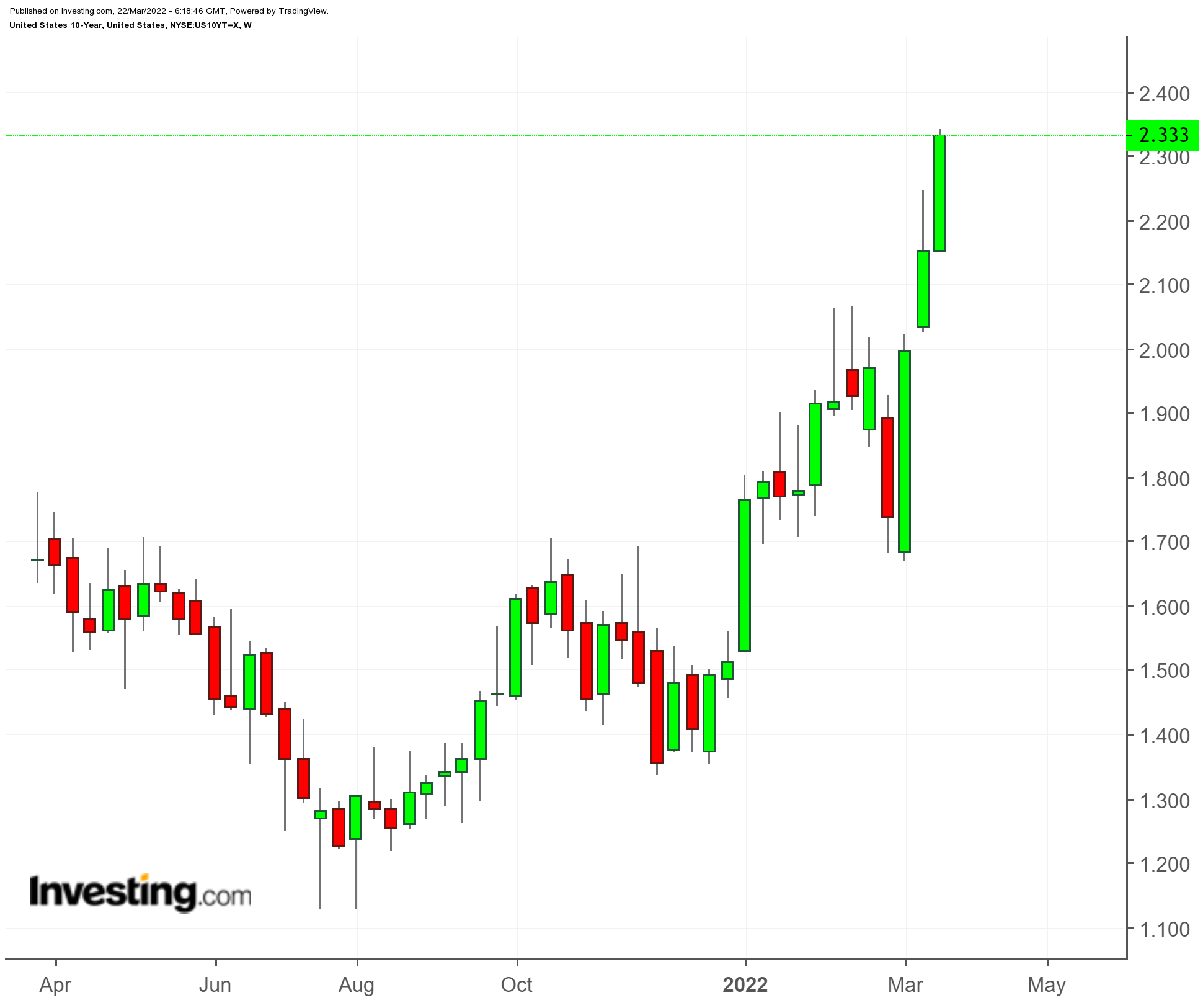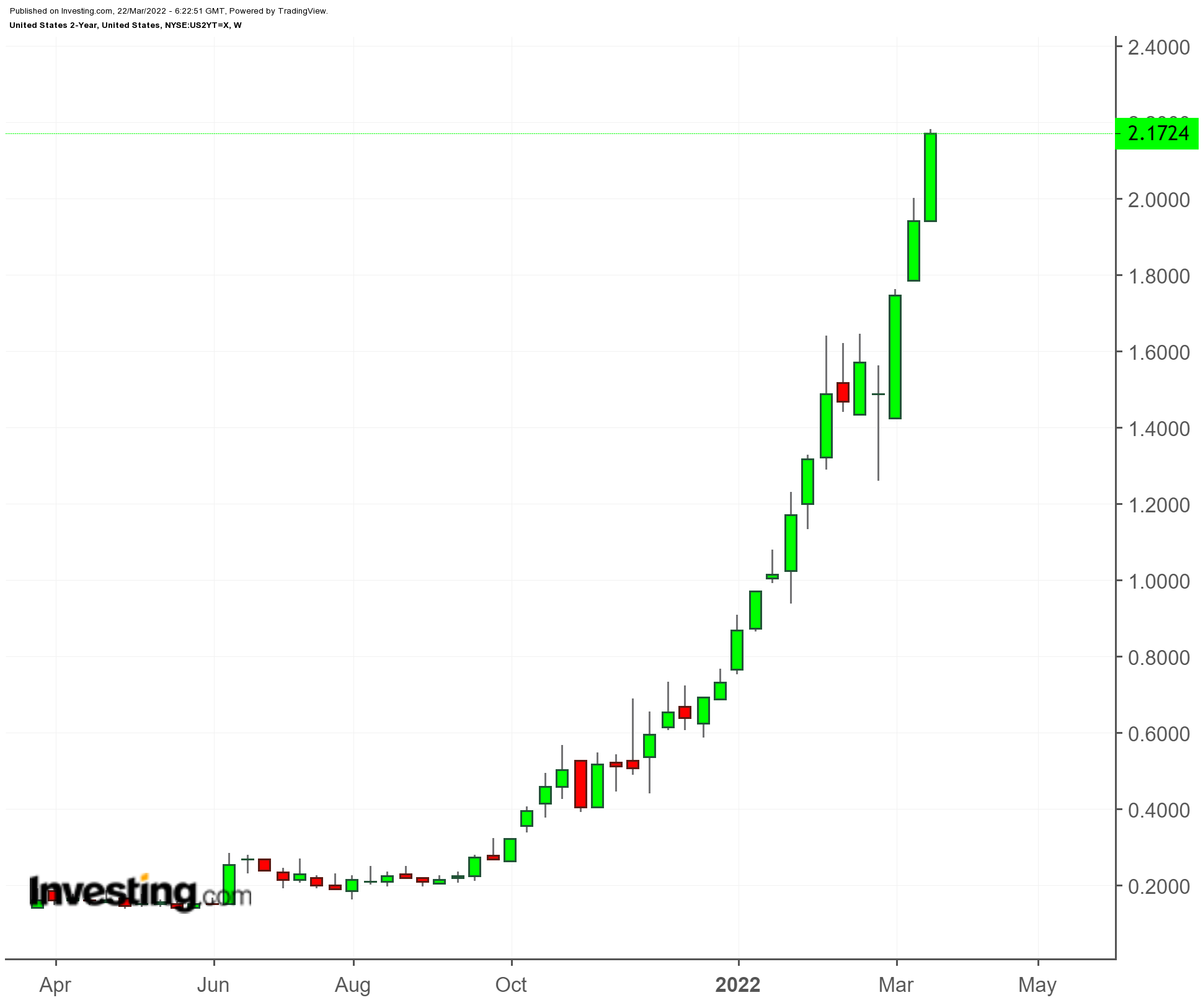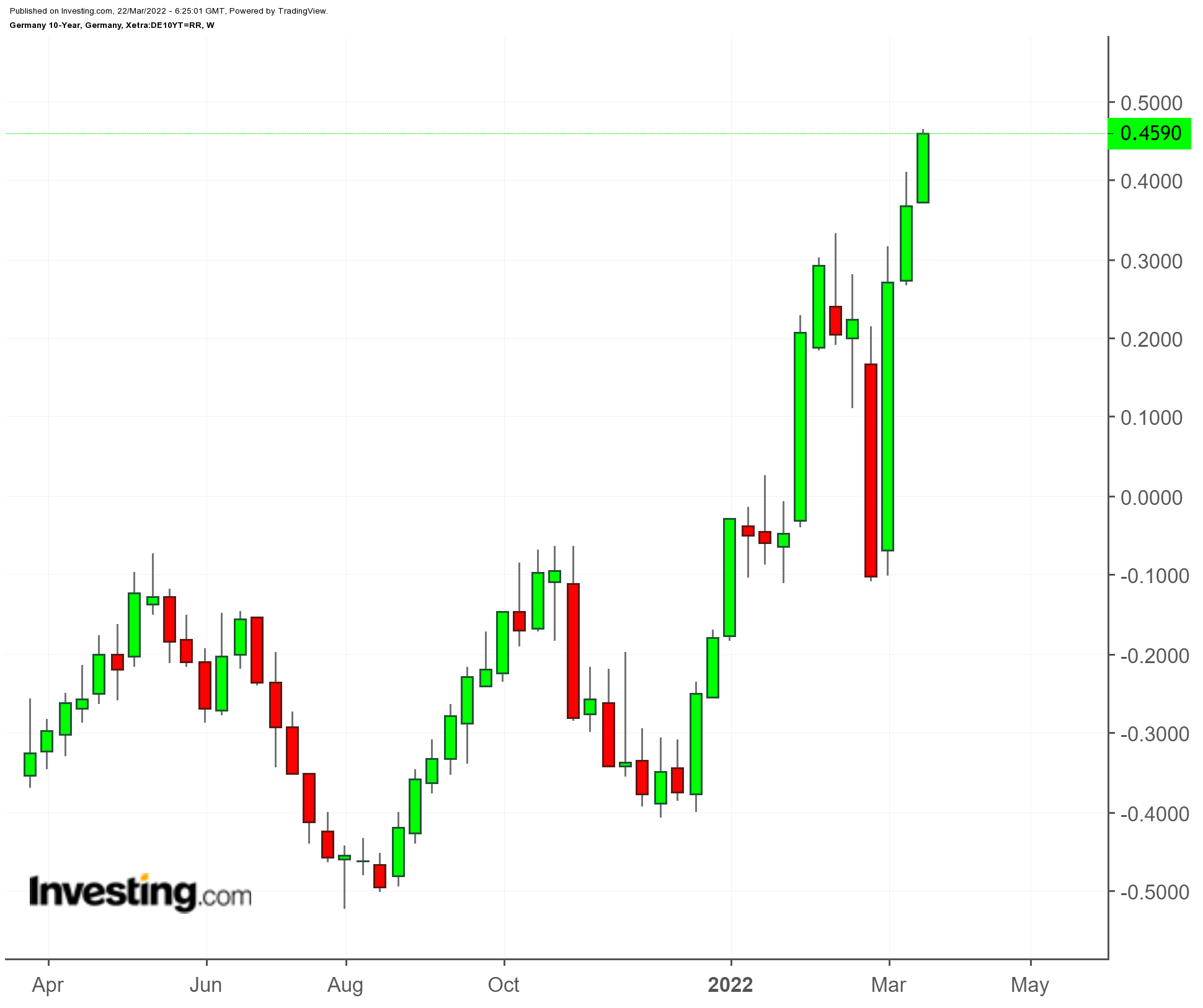Federal Reserve Chairman Jerome Powell proved to be a more forceful motivator for investors in US Treasuries than Ukrainian President Volodymyr Zelensky.
Powell said on Monday that the Fed could more aggressively tighten monetary policy in view of rampant inflation and start raising its policy rate by half-points, if needed, instead of the more gradual trajectory of quarter-point hikes—a declaration that sent stocks plunging and Treasury yields soaring.
Zelensky only warned that World War III could break out if Kyiv’s peace talks with Russia fail. The Ukrainian president has earned the world’s respect, but he also desperately wants to keep the world’s attention. Few would exclude the chance of the Ukraine conflict escalating into a wider war, but most still consider it unlikely.
Real fears of global war would send investors scrambling into US sovereign bonds. Instead, they dumped Treasuries, forcing yields to rise and keep pace with Powell’s pledge to raise rates more quickly, if necessary.

Yield on the benchmark 10-year Treasury note, which had already broken through the 2% barrier in anticipation of the Fed’s quarter-point hike last week, spiked above 2.3% after Powell’s remarks Monday to the policy conference of the National Association for Business Economics.

Yield on the two-year note, which is more sensitive to the Fed’s short-term rates, shot up more than 15 basis points Monday to top 2.11%. At the beginning of March, the yield sank below 1.4%.

Germany’s 10-year bond yield continued its increase as well, but at a slower pace. Still, it is nearing the 0.5% mark after dipping back into negative territory in the first week of March.
Inflation, Potential Russian Default Add To Bond Investor Worries
The European Central Bank has been more equivocal about raising rates as policymakers feel inflation is not as urgent an issue as in the US. But the German public is famously edgy about inflation, and the news that discount grocer Aldi is raising prices on 400 items probably had a bigger impact than anything an ECB board member could say.
Worries about a Russian default are adding to the concerns of bond investors. Moscow surprisingly was able to pay $117 million in interest last week, but faces another $615 million falling due through the end of March. At the beginning of April, Russia is due to redeem a $2 billion bond. The freezing of Russia’s central bank reserves as a sanction for the invasion of Ukraine makes hard-currency payments a challenge.
Russia’s central bank estimated in September that total foreign debt was $490 billion in dollar terms, including some $150 billion in bonds denominated in the US currency, according to Bloomberg estimates. If Russia does default, it would be bigger than that of Argentina in 2001 involving $95 billion, and Russia’s first foreign-currency default since the revolution in 1917.
Inflation expectations in the US remain anchored even as they climb slowly upwards and still are contained below 4% over the next five years. But even one rogue Fed economist, Jeremy Rudd, has challenged the assumption that market data on inflation expectations accurately indicate what will happen with prices.
That notion is largely an article of faith for bond investors, and like most such beliefs, it will hold until it doesn’t. The consequence could be a further sharp rise in government bond yields.
